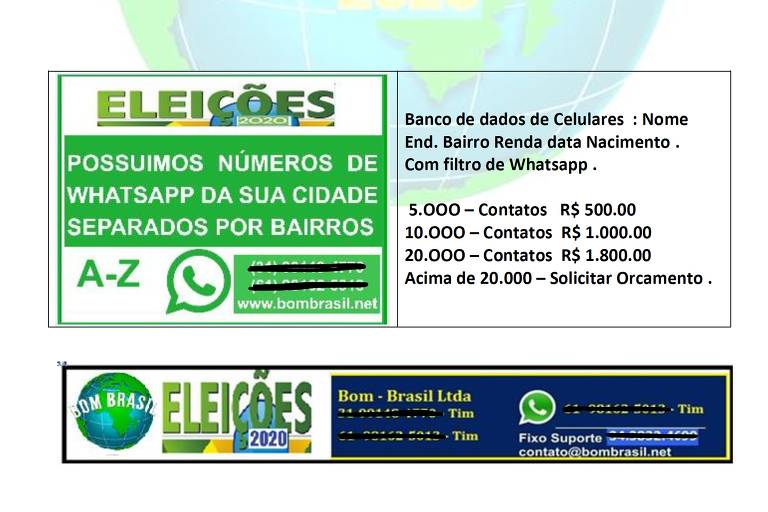Almost a year after the TSE (Superior Electoral Court) banned mass messaging for political purposes, the electoral messaging industry via WhatsApp and the extraction of personal data from voters via Instagram and Facebook continues to operate.
Folha's investigation and denunciations of candidates for councilman show that to influence voters through social networks, at least five companies offer these services to candidates for city council and mayoral elections.
Companies and candidates who blast messages or use voter contact records without authorization may be subject to a fine and, depending on the magnitude of the use of these illegal tools, to an electoral judicial investigation action, which may ultimately lead to the maturation of the plate.
Last year Whatsapp mass messaging was allowed under the following circumstances: 1) if people voluntarily signed up for the messages 2) attacks or false news were not disseminated, and 3) it was not declared as a campaign expense to the TSE. In November 2019, a TSE resolution banned any mass submission of electoral content.
In addition, it determined that political messages can only be sent "to addresses registered free of charge by the candidate, the political party or the coalition, subject to the provisions of the General Data Protection Law regarding the consent of the holder".
Translated by Kiratiana Freelon
